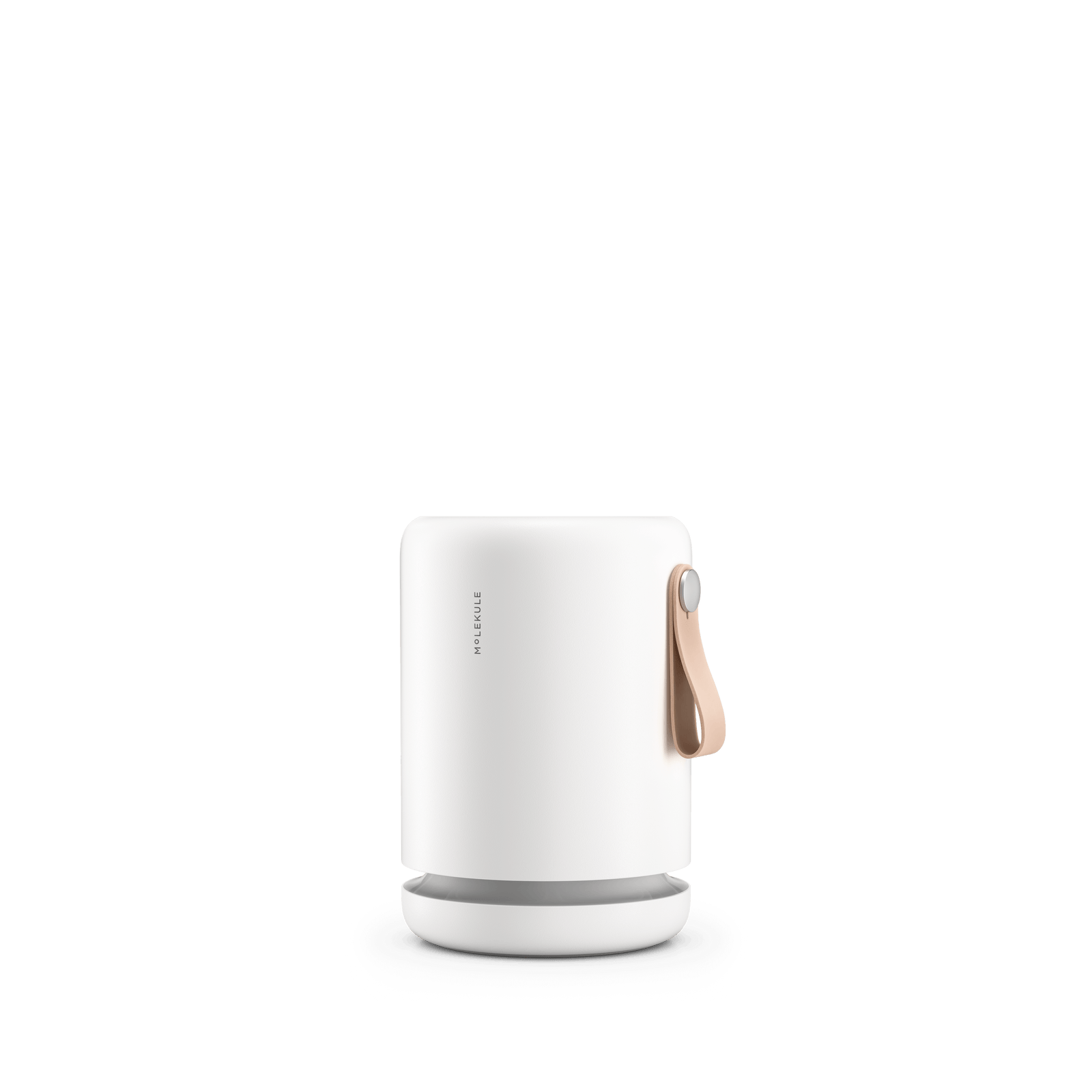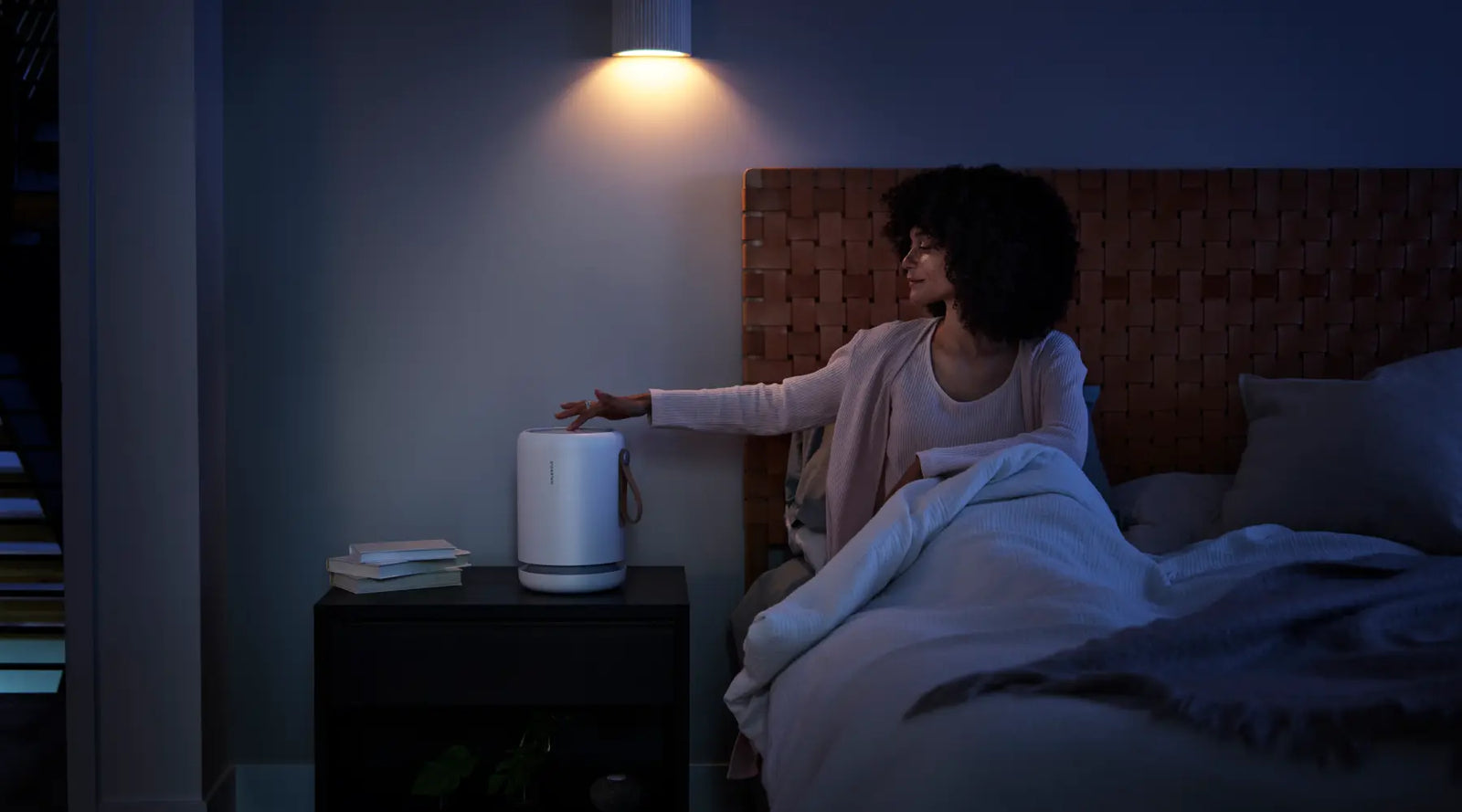In the two years since Molekule’s air purifier publicly released, claims of its impressive capabilities have spread around the web. Time magazine listed Molekule among the “Best Inventions of 2017,” Popular Science included the device as one of the “10 Greatest Home Innovations of the Year,” and the product won the Edison award™ for “Best New Product” in 2017. Due to its patented PECO technology, Molekule is significantly different from any other air purifier on the market. But you may be wondering: How does Molekule live up to its accolades? Below, we examine the frequent claims surrounding Molekule to help explain the legitimate, science-backed research behind the air purifier and the effectiveness of its performance.
Molekule and PECO claims
The Photo Electrochemical Oxidation (PECO) technology inside the Molekule air purifier works at the molecular level to break down pollutants. There are two filters in the Molekule air purifier: the Pre-filter and PECO-Filter. Similar to a more standard filter, the Pre-Filter helps protect the PECO filter by trapping larger particles, including:
- Dust
- Pollen
- Pet fur
- Clothing and bedding fibers
The PECO-Filter is what sets Molekule apart from traditional air purifiers. Light shines on a filter membrane coated with a catalyst, which starts a catalytic reaction on the surface of the filter. The device takes pollutants that pass through and converts them into harmless substances, such as water vapor and carbon dioxide. The PECO-Filter can destroy indoor air pollutants such as:
- Mold spores
- Volatile organic compounds (VOCs)
- Allergens, including pollen, dust and pet dander
- Bioaerosols, such as bacteria and viruses
Below are the primary claims of the effectiveness of Molekule’s unique technology, along with the facts and figures behind them.
Claim: Molekule’s revolutionary PECO technology can destroy airborne pollutants like allergens, bacteria, mold, VOCs, and viruses by breaking them down at the molecular level.
Facts: The pollutants listed above cause the most significant air quality concerns and are mostly made up of organic substances, which are compounds that contain carbon and hydrogen. The Molekule air purifier gets rid of these substances through chemical oxidation. During this process, the PECO-Filter breaks these organic compounds into components that are safe to breathe.
In 2018, Intertek, a Nationally Recognized Testing Laboratory (NRTL), decided to test this claim. They used a representative sample of common household VOCs, made up of formaldehyde, toluene and d-limonene, to determine how well the Molekule air purifier could remove contaminants from a room.
The lab found that it only took the PECO technology a few hours to reduce airborne VOCs to below quantifiable levels. These results show that, unlike some of the other air purifiers on the market, Molekule can eliminate VOCs without risk of releasing them back into the air. For more information, check out our PDF explainer of the test, as well as our blog post on the results.
A report by the Aerosol Research and Engineering Laboratories (ARE Labs) confirms Molekule’s performance against organic pollutants. In this test, which is one of the most challenging tests that an air purifier can go through, researchers performed a “single-pass test” on the Molekule air purifier to see how capable it was at removing bioaerosols, like bacteria, viruses, mold and endospores, from the air.
Note: A single-pass test is the most challenging test that an air purifier can go through. In it, air is passed through the air purifier only once, meaning that the filter in the unit only has one chance to remove all airborne pollutants.
The ARE Labs report states that the Molekule air purifier significantly reduced the concentration of airborne bioaerosols that passed through the filter.
Claim: HEPA is the traditional standard for portable air filtration. PECO offers a revolutionary and effective method for destroying VOCs, and does not merely trap pollutants.
Facts: HEPA filters are tested to capture 99.97% of particles at a diameter of 0.3 microns. Unlike HEPA filters, PECO technology destroys mold spores and other pollutants.
Activated carbon, on the other hand, removes VOCs from the air through a process called “adsorption”—as air passes through a carbon filter, VOC molecules stick to the filter’s surface.
Molekule’s PECO-filter does utilize the methods of HEPA and carbon filters and it is effective against both particle and gaseous pollutants. Not only does the PECO-filter contain innovative photocatalytic technology that operates at the molecular level, it’s also a fabric filter capable of removing particles from the air. Then the technology goes a step further by destroying the airborne pollutants like VOCs, airborne microorganisms, and allergens so they can’t penetrate through or evaporate from the filter.
The claims about the Molekule air purifier’s performance are unlike what many have seen before and naturally require more information to back them up. However, multiple research tests from the most rigorous labs in the nation have backed the product’s effectiveness against, VOCs bioaerosols and other indoor air pollutants. With solid research and scientific evidence demonstrating that it can destroy airborne pollutants, the Molekule air purifier can improve the air quality in your home or work space.












